Daz reviews the Canyon Lux Trail – another XC/trail bike in a long line of this ilk that he’s tested. Images by Rob Lockhart.
I’m sure it was just an unfortunate coincidence, but I can’t be the only mountain biker wondering why the bike industry chose the last two years to launch a glut of bikes in the XC/trail category, just when the demand for racy marathon machines designed for all day endurance and technical trail shredding was probably at an all-time low due to us all being told to stay at home, and not do anything stupid that might put undue stress on health services?

This very magazine/website told us no gnar and not too far (and who am I to argue with Chipps and Mark?) so it didn’t exactly provide the best environment to ride and test all these bikes. Even despite that though, I’ve ridden or reviewed bikes in this category from Kona, Intense, Specialized, Cannondale and Merida. And now, slightly late to the party, you can add Canyon to the list with the Lux Trail. I don’t know why Canyon were lagging behind the rest, but it was pretty good timing now that we’ve been released from our pandemic inspired sensibleness, and all the events and races which were cancelled in 2020 are ramping up again.
With that in mind, it seemed only right that I take the Lux to the 10@Kirroughtree for what was possibly the first endurance race to go ahead following the great shutdown. I’d ridden ‘The Ten’ before, and back in 2019 I found it something of a challenge with its steep rooty and loamy descents, and that was on a big 150mm suspension trail bike in the dry. This time the apocalyptic weather would present an altogether different, and vastly more slippery and unpredictable challenge.
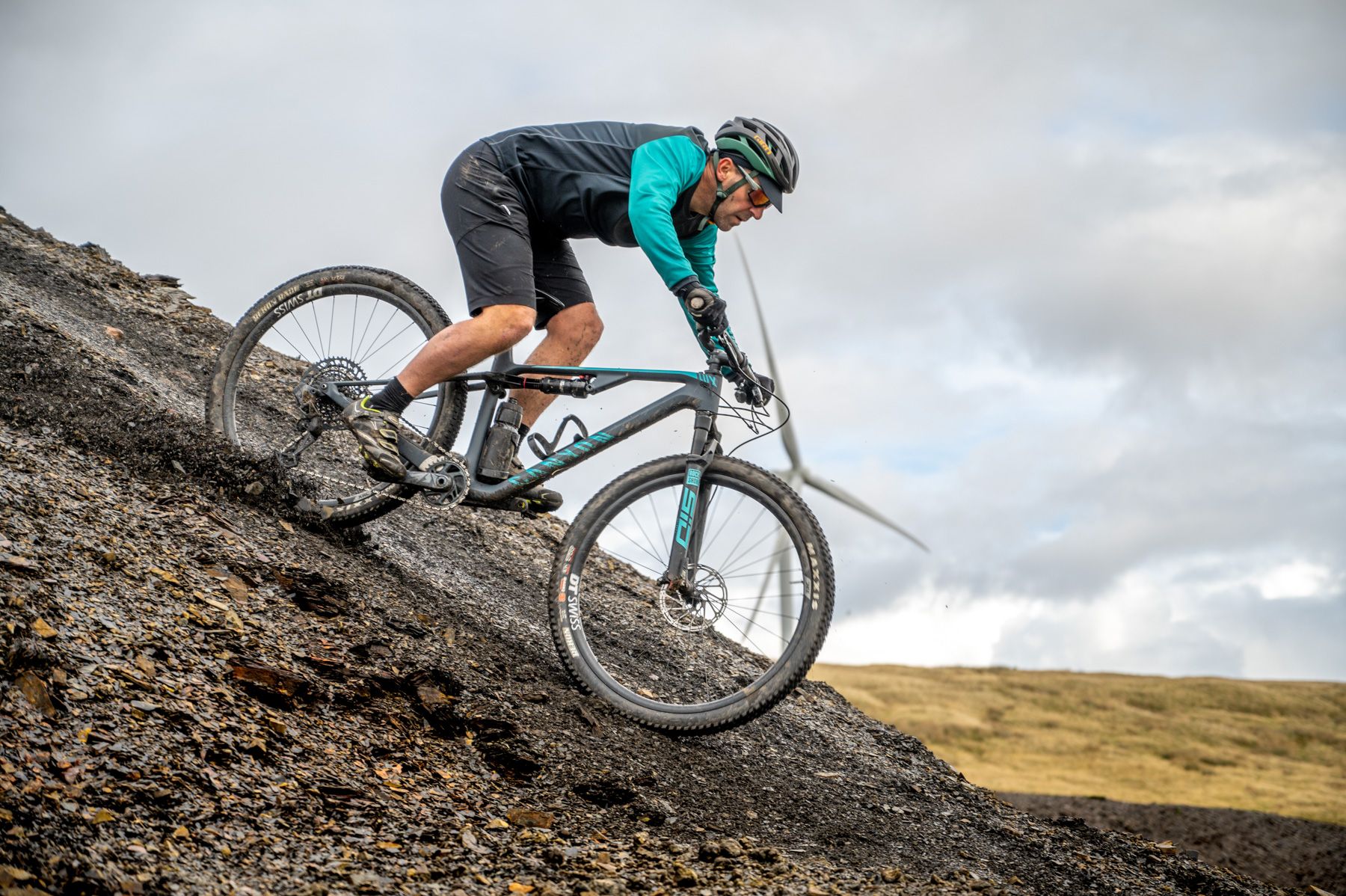
The Bike
Back in 2018 I reviewed the XC version of the Lux and found it to be a technically capable race bike which was also comfortable over long distances. The Lux Trail takes these characteristics to the next level with 110mm of rear suspension and 120mm forks, more relaxed geometry, fatter tyres and longer bars. Sometimes with these XC-trail bikes you’re left wondering whether they’re a trail bike pretending to be XC or vice versa, but Canyon are up front in marketing it as an XC bike with trail bike descending capabilities. Which is a good thing in my opinion, as I rarely come across trail riders who are too bothered about weight and climbing prowess, but have lost count of the number of XC racers who wish they could go faster downhill.
On first appearances the Lux Trail doesn’t look much different from its more racy sibling. It keeps the 3-Phase suspension system and full carbon frame used on the Lux with a single pivot rear end, minimalist upper link, and the shock neatly arranged below the top tube. Combined with the curved down tube that provides ample room within the frame to accommodate two 750mm bottles. Where it differs unsurprisingly is the geometry, and of course this means it’s longer and slacker. There’s 20mm more reach on average across the sizes, with the medium on test here providing a roomy 460mm, and the head angle benefits from an extra 2.5 degrees of confidence inspiring slackness at 67.5°.
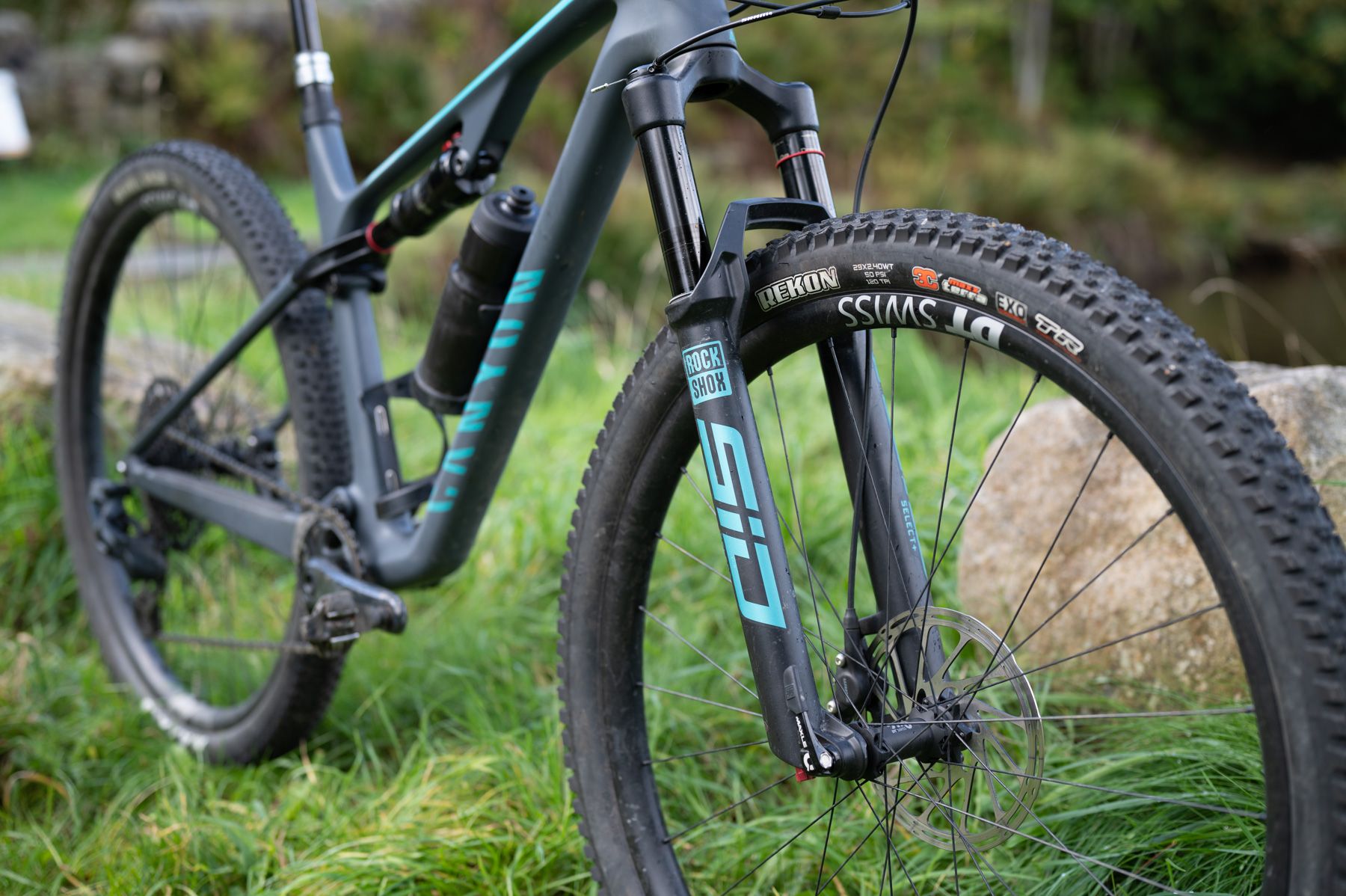
It’s not just the geometry which promises to improve its trail riding potential. The Lux trail has some other facets which won’t come as a surprise. The cockpit sports a shorter stem and longer bars at 60mm and 760mm respectively, and the tyres are fatter with a Maxxis Rekon 2.4 on the front and a 2.3 Rekon Race at the back. It has a dropper of course in the form of a AXS Reverb (more on that later), and the trail transformation is completed with the stiffer and burlier 35mm Rockshox SID Select+ forks.
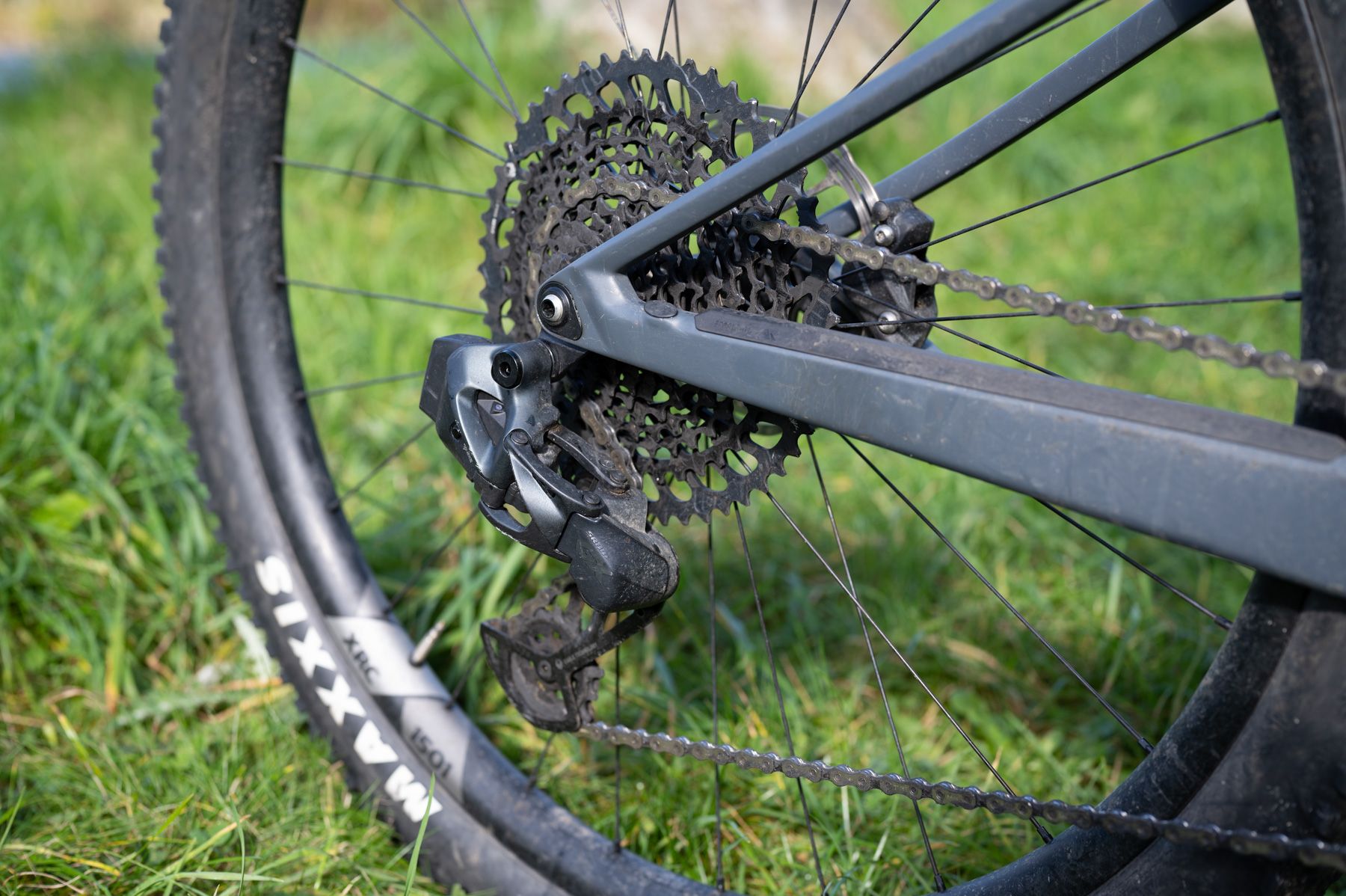
The other standout feature of this model of the Lux Trail is the price tag (in a good way), or more specifically the value for money. At the risk of being called a middle class w*nker (again) in the comments section, £5,149 is an astonishingly low price given the spec, especially given the upwards pressure as a result of unwelcome world events and incompetent mega-tanker navigation (did that have much of an effect? I have no idea, but it sounds like a good excuse).
Yes, upwards of £5k is a lot to spend on a bike, and more than many will be prepared to stomach. But given £5k these days will buy you a mid-high range trail bike with less than top spec mechanical parts and wheels made of metal, it’s something of a shock to see the Lux Trail sporting a SRAM GX Eagle AXS groupset, DT Swiss XRC carbon wheels and, amazingly, a Reverb AXS dropper. If you’re still not convinced of the value for money this represents, then take a trip to the websites of some Canyon’s competitors and it won’t take you long to find the eye-watering prices for bikes with electronic gears and dropper posts.
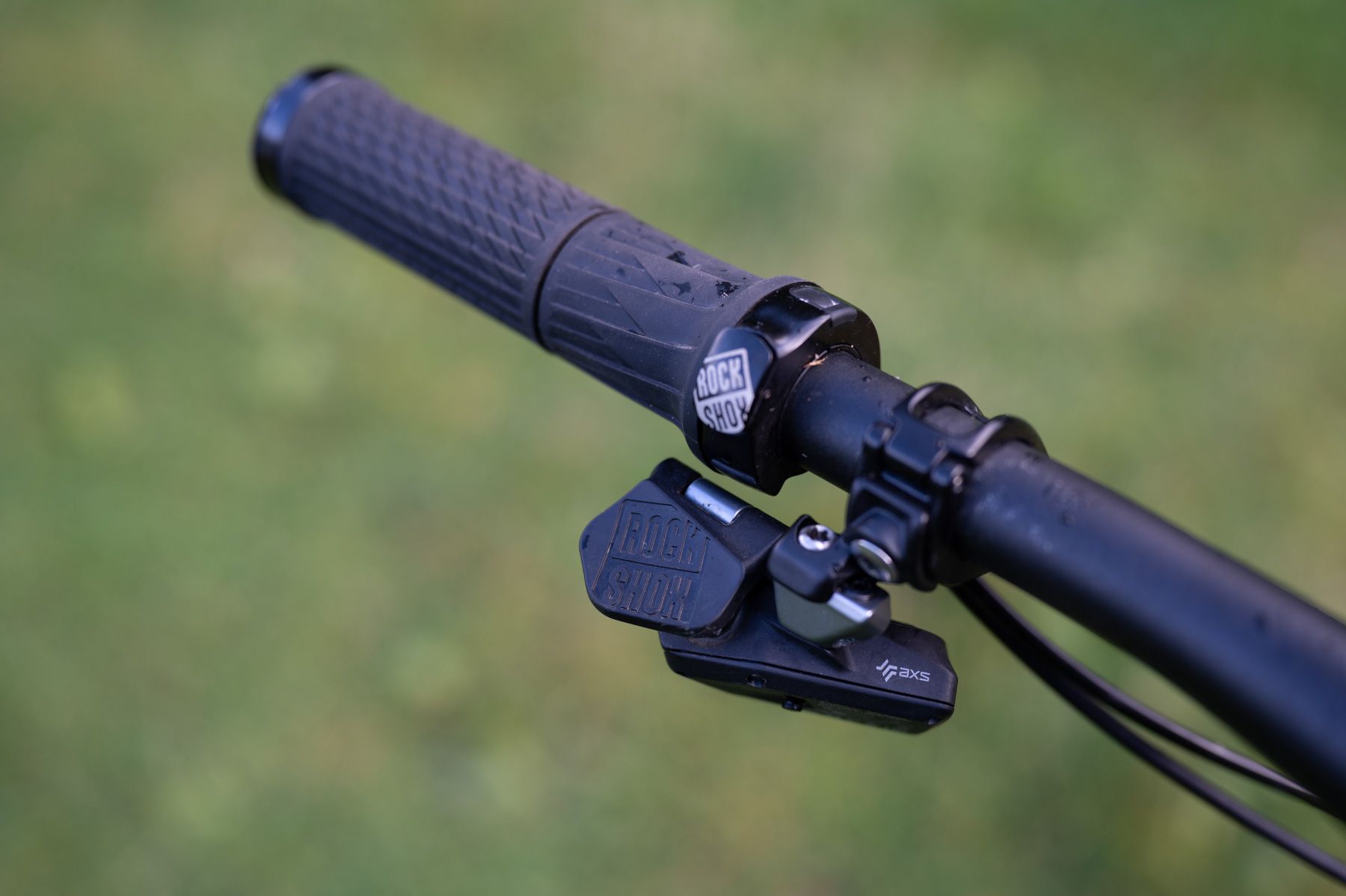
Of course all this electronic gadgetry and carbon bling is for nothing if the rest of the bike doesn’t maintain the standard, and I’m pleased to report that the Lux has somehow avoided the need to skimp on the rest of the spec. The SID Select+ forks and Deluxe Ultimate shock are not exactly low spec components and are supplemented with a SRAM TwistLoc remote double lockout. I’m always torn on whether a remote lockout is required on anything other than an all out race bike, and this is no different with the Lux Trail. Given the pedalling efficiency of modern suspension, unless you’re Nino Schurter sprinting for a finish line I’m not sure what the point is.
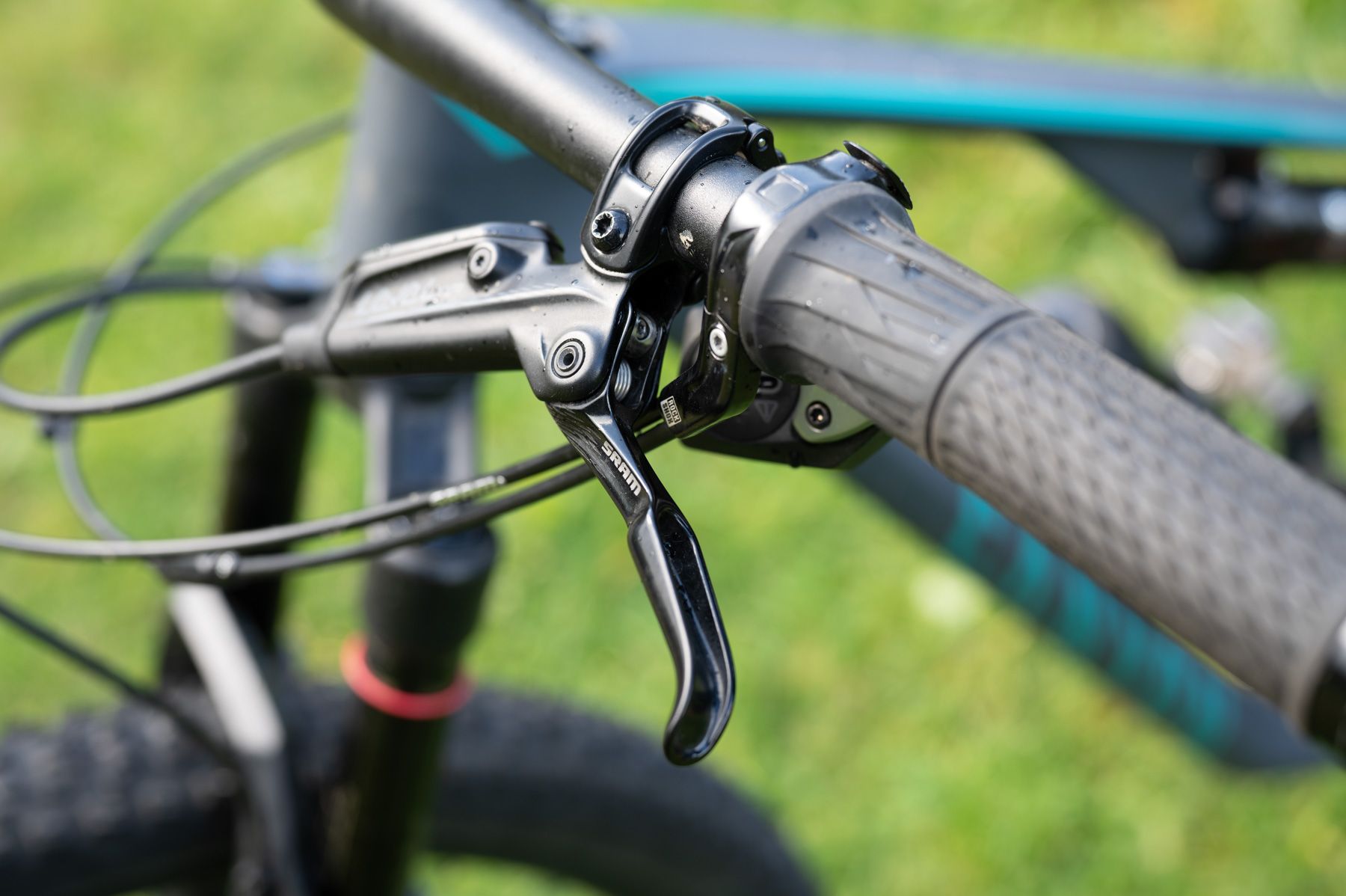
The Ride
It won’t come as any surprise that on first impressions the Lux Trail feels vastly differently from its original XC racing sibling. Even before you set off it’s very apparent that despite the marketing of a XC bike which can descend like a trail bike, it’s very much not an aggressive, stem chewing twitchy race bike. Instead, the slacker 67° head angle, more upright stack, wider 760mm bars and shorter 60mm stem provide a cockpit that very much resembles a trail bike rather than a race machine. Add to that the longer reach and what you have is a bike which feels altogether more trail than XC. In fact the riding position almost feels a little too comfortable for something which claims to maintain its XC pedigree.
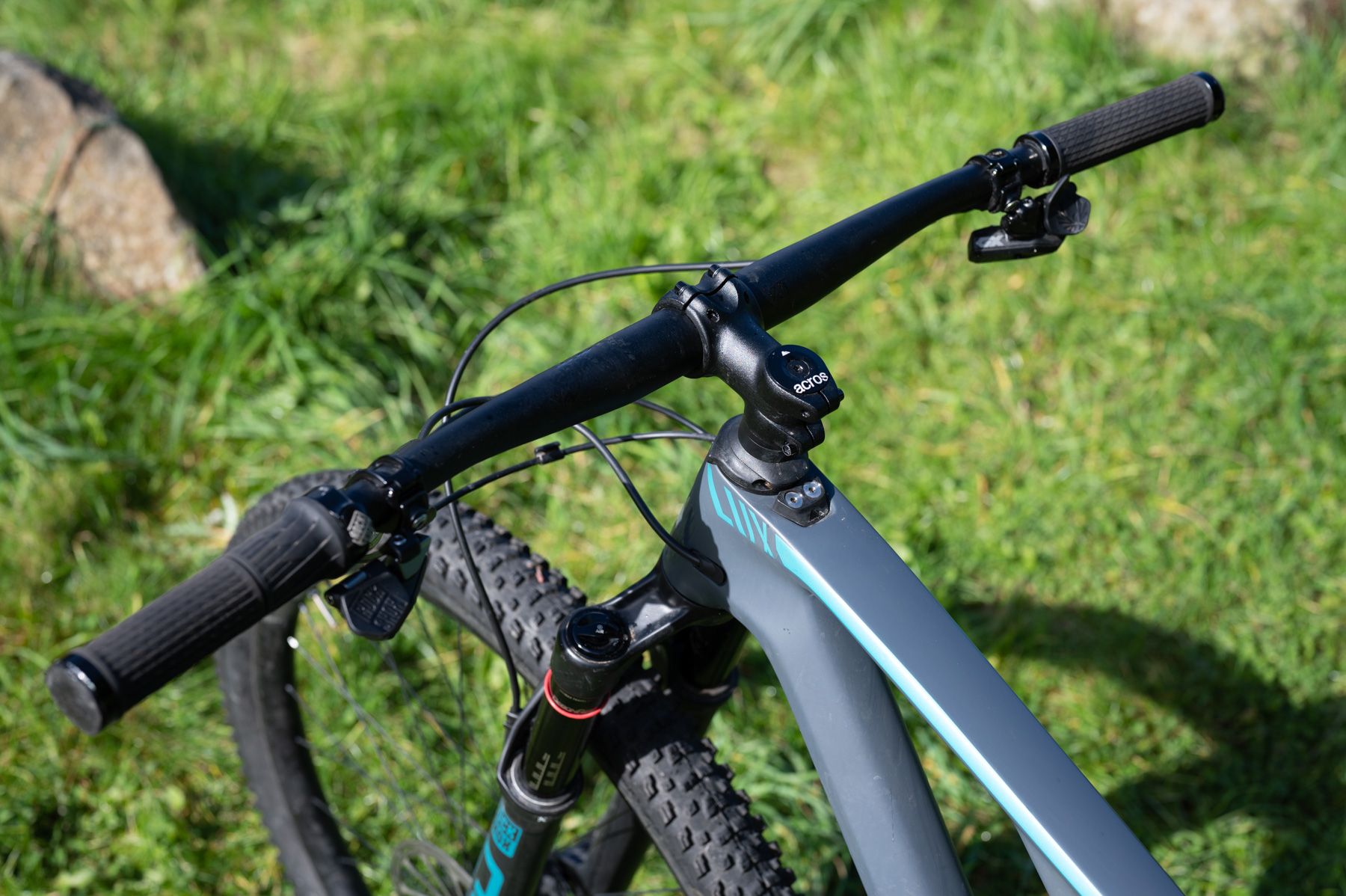
First pre-ride impressions aside, on the first few turns of the pedals it becomes apparent that this is no trail bike in the traditional sense. The sub-12kg weight and stiffness provided by the thick down tube, bottom bracket and the reused Lux rear triangle provide a pedalling efficiency which instantly tell you that this bike is built for pedalling hard. If winching up the hill in the 52 tooth rear sprocket is your thing then this bike might be wasted on you. It’s so good at climbing in fact that you’ll only need the lowest gear on the very steepest terrain.
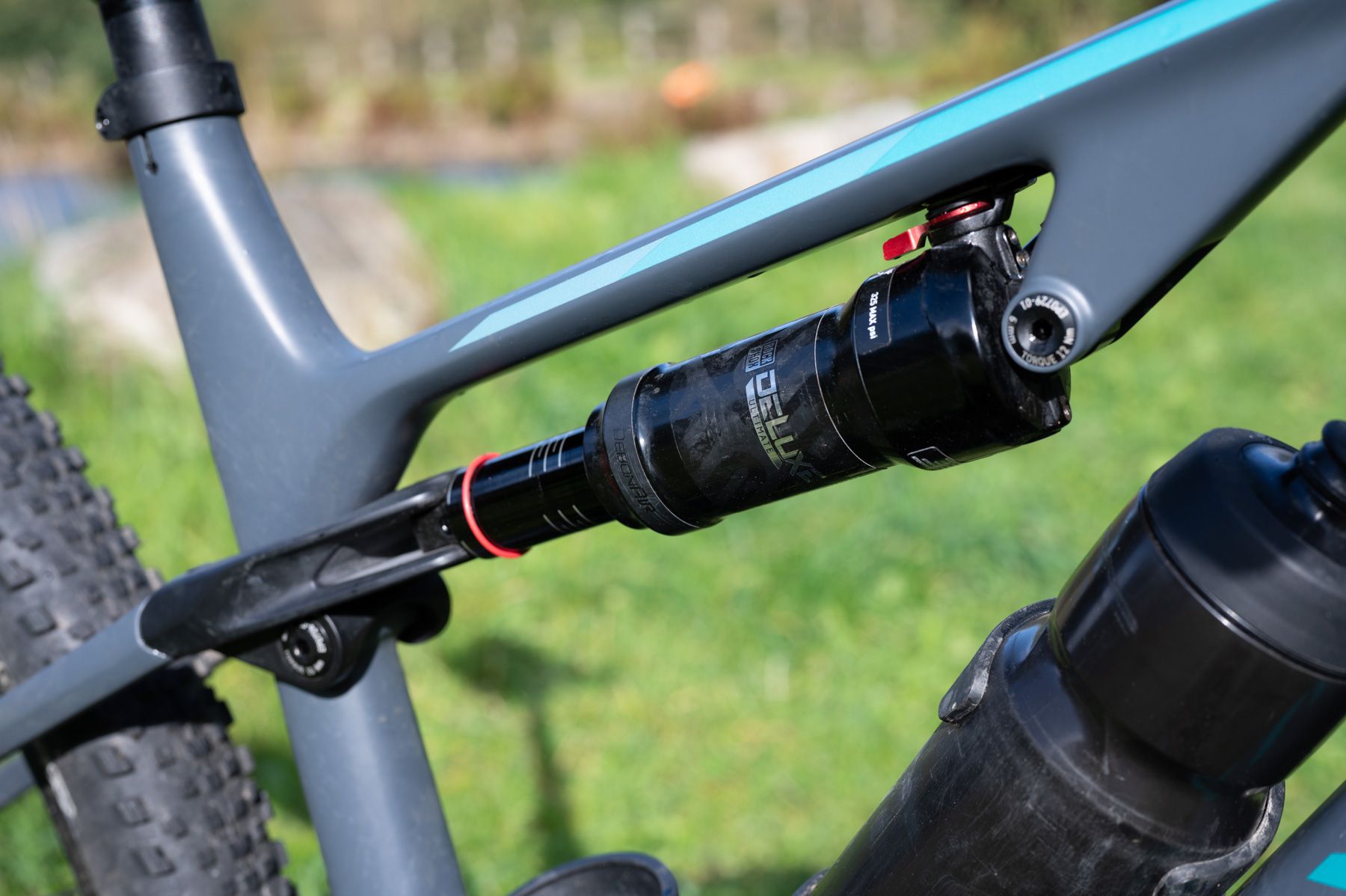
The triple phase suspension also plays its part in the climbing efficiency. Like the Lux it’s designed to be progressive in three distinct phases providing small bump compliance in the first third of the stroke, stable in the middle, and then ramping up in the final third to absorb big hits. Despite the progressive nature it feels a little more supportive and linear throughout than some bikes I’ve ridden in this category, and the anti-squat in particularly provides a pedalling platform which is very efficient, even in low twiddly gears when pedal-bob can be more apparent.
The suspension is easy to set up, without needing much more than setting the sag to 30% and then adjusting slightly as your preference dictates. Once set up the suspension provides a ride that is very planted on climbs and descents, and in combination with the wider rear tyre provides a level of grip on steep terrain which is very welcome. It’s not quite as much the uphill rocket as the Lux of course due to the slacker angles, but only perfectionists or race whippets will notice the slightly more wandering nature of the front wheel on climbs.
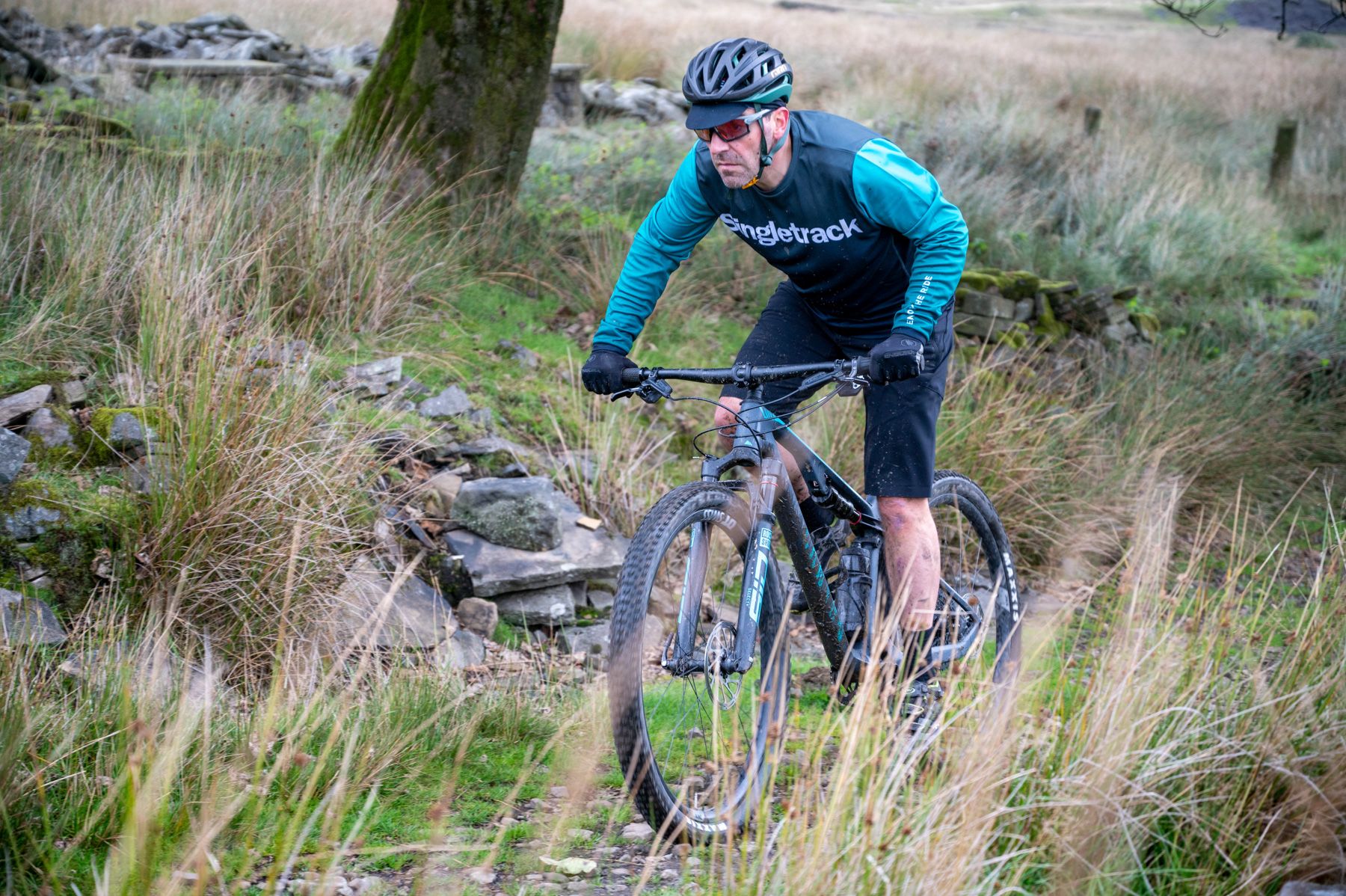
Whilst it’s no surprise that the Lux Trail is a good climber, the big question of course is whether it delivers on the marketing claim to descend ‘like a bat out of hell’ (no, I’m not going to use any Meatloaf puns). I’ll cut to the chase, it does, but within certain limits. One of the reasons I wanted to take this to the 10@Kirrroughtree is that it includes some steep loamy off-piste descents which you often don’t find on endurance XC courses. The slick mud and torrential rain foiled that plan though, as it’s tricky to push a bike to its limits when keeping it upright was the main challenge. Especially with Rekon tyres, which are very far from performative on off-camber mud covered roots.
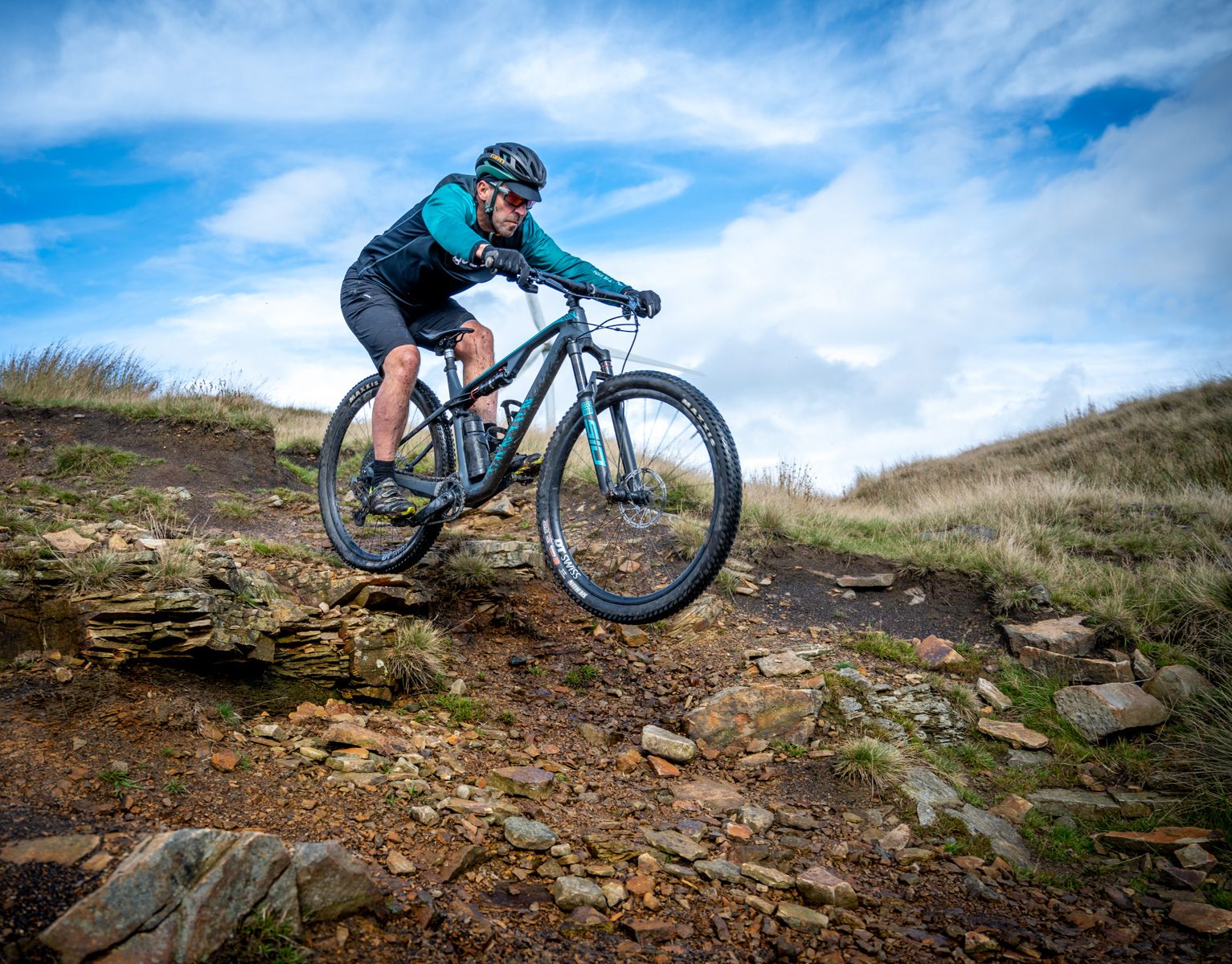
The backup plan following the Kirroughtree deluge was a weekend in the Lake District, and on the man-made and natural slate trails of Grizedale the Lux Trail was in its ideal terrain. The geometry and supportive suspension provide an almost perfect combination for pushing the limits on fast flowing descents. And limits are hard to find, as at speed on flowing trails the bike is incredibly stable and assured and soaks up smaller rocks and roots as if they aren’t there. You have to pay more attention on rockier terrain as you can’t just muscle your way through obstacles as you could with a heavier bike, but judicious line choice will compensate for any lack of heft. On steeper terrain the geometry and longer forks come into their own and it will get you down steep enduro trails with surprising ease, although it would take a better rider than myself to negotiate these with any speed or style.
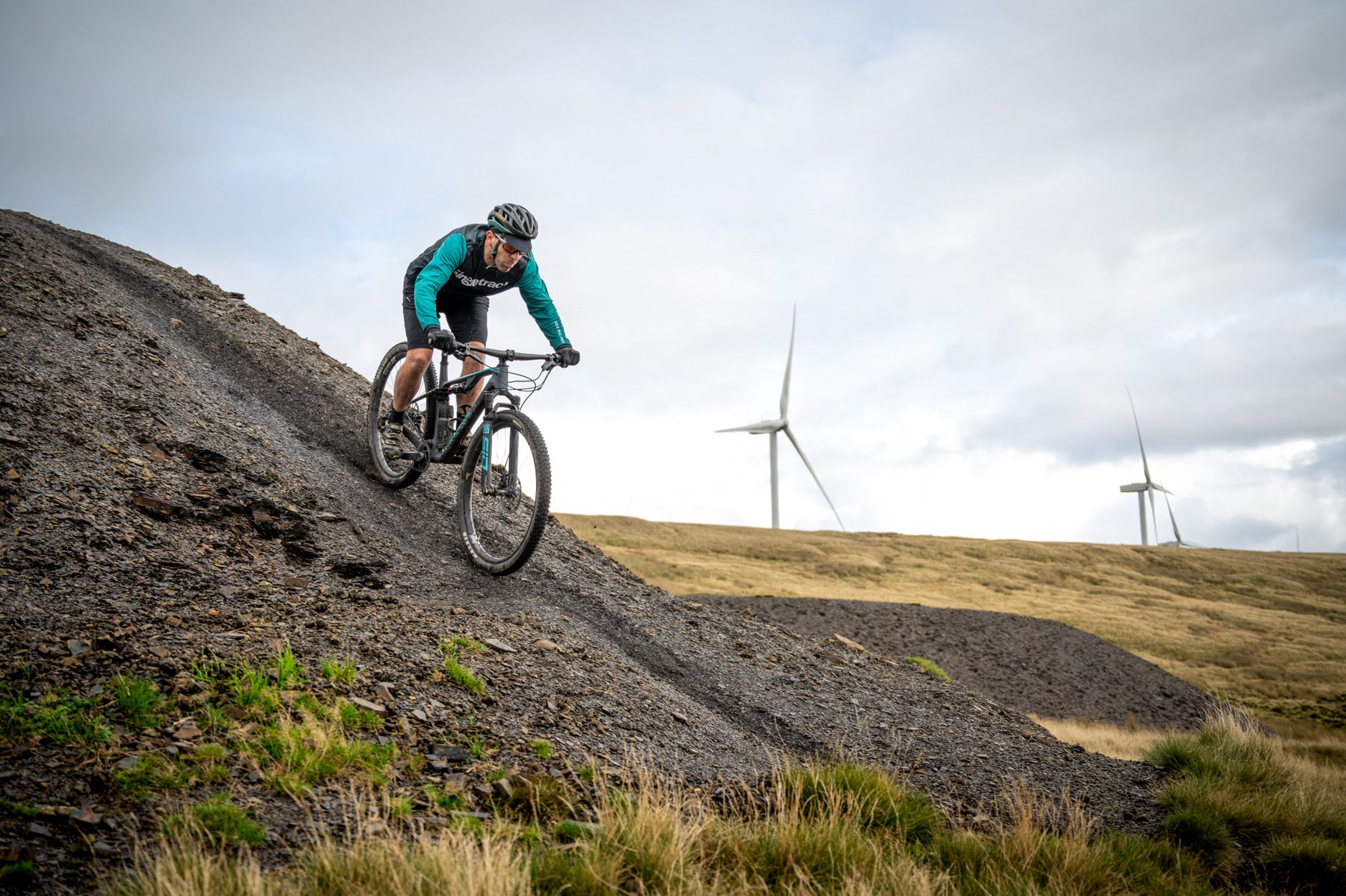
Perhaps the biggest strength of the Lux Trail is not the binary capabilities of climbing and descending, although it does very extremely well at those, but somewhere in between, and this is where the electronic gadgets play their part. The wireless gears and dropper are not just there to show off, and they provide a level of control and accuracy which mechanical parts can’t match. Gear shifts are lightning fast to enable continuous application of power on flat and undulating ground and the AXS dropper is nothing less than a revelation in the responsiveness and ease with which you can tune the saddle height to match the conditions. I never thought I’d ever entertain the idea of spending £700 on a seatpost but after riding this it’s top of my list for upgrades on my own bikes, however much I might have to endure the ‘how much?’ ribbing from my mates.
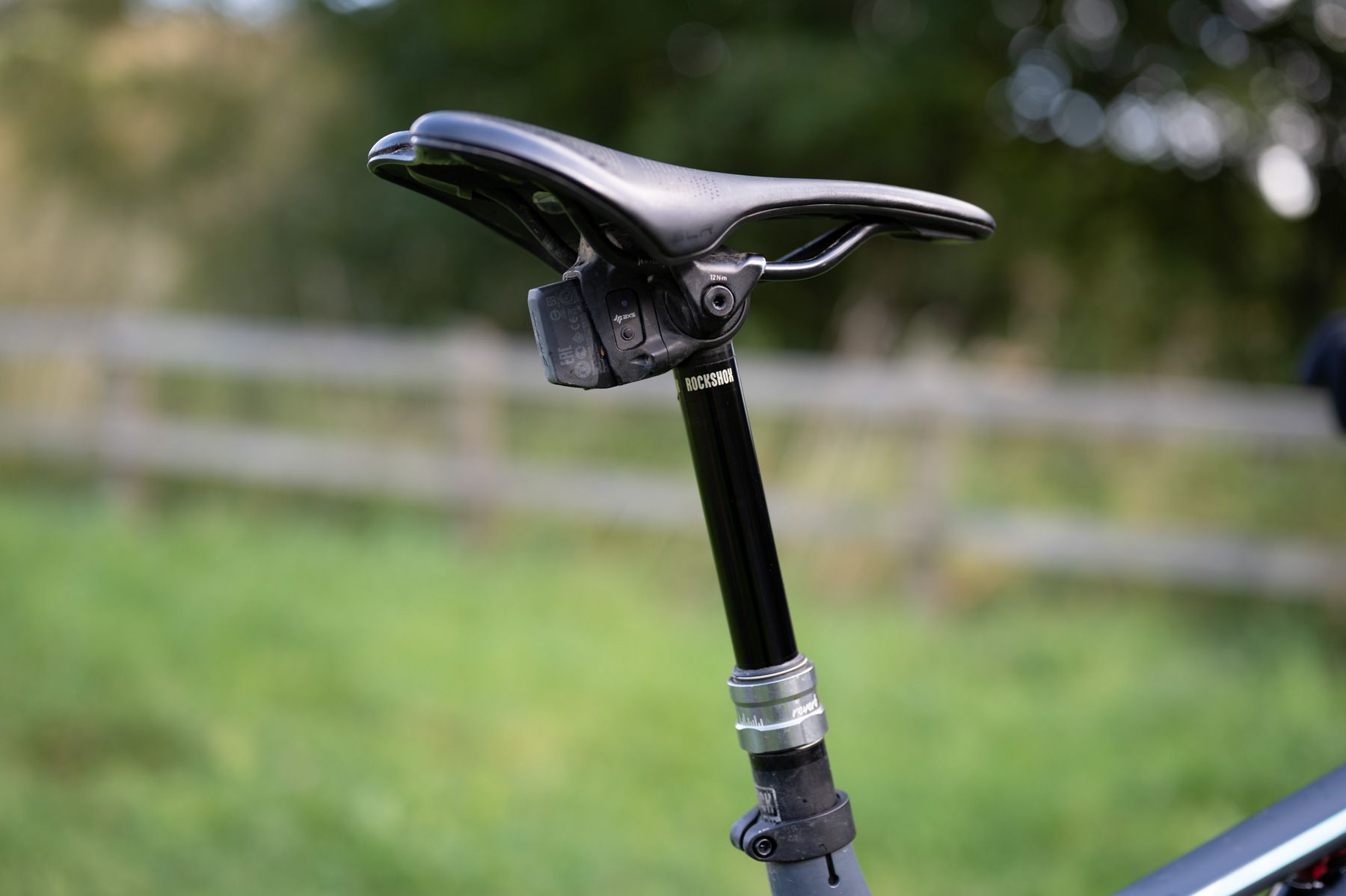
Combined with the excellent DT Swiss carbon wheels which have an almost frictionless quality, the whole package combines to provide a bike which goes faster on XC race course trails than almost any other I’ve ridden. Given this it feels a little pedantic to look for areas of improvement, but even so there are some. I’ve said little about the remote lockout, and the simple reason is I hardly ever used it. It’s probably better to have it than not, although it does clutter the cockpit and the Twistloc grip can move slightly if twisted too vigorously. Higher end brakes would be good too, although given the spec of the rest of the bike it’s probably asking too much.
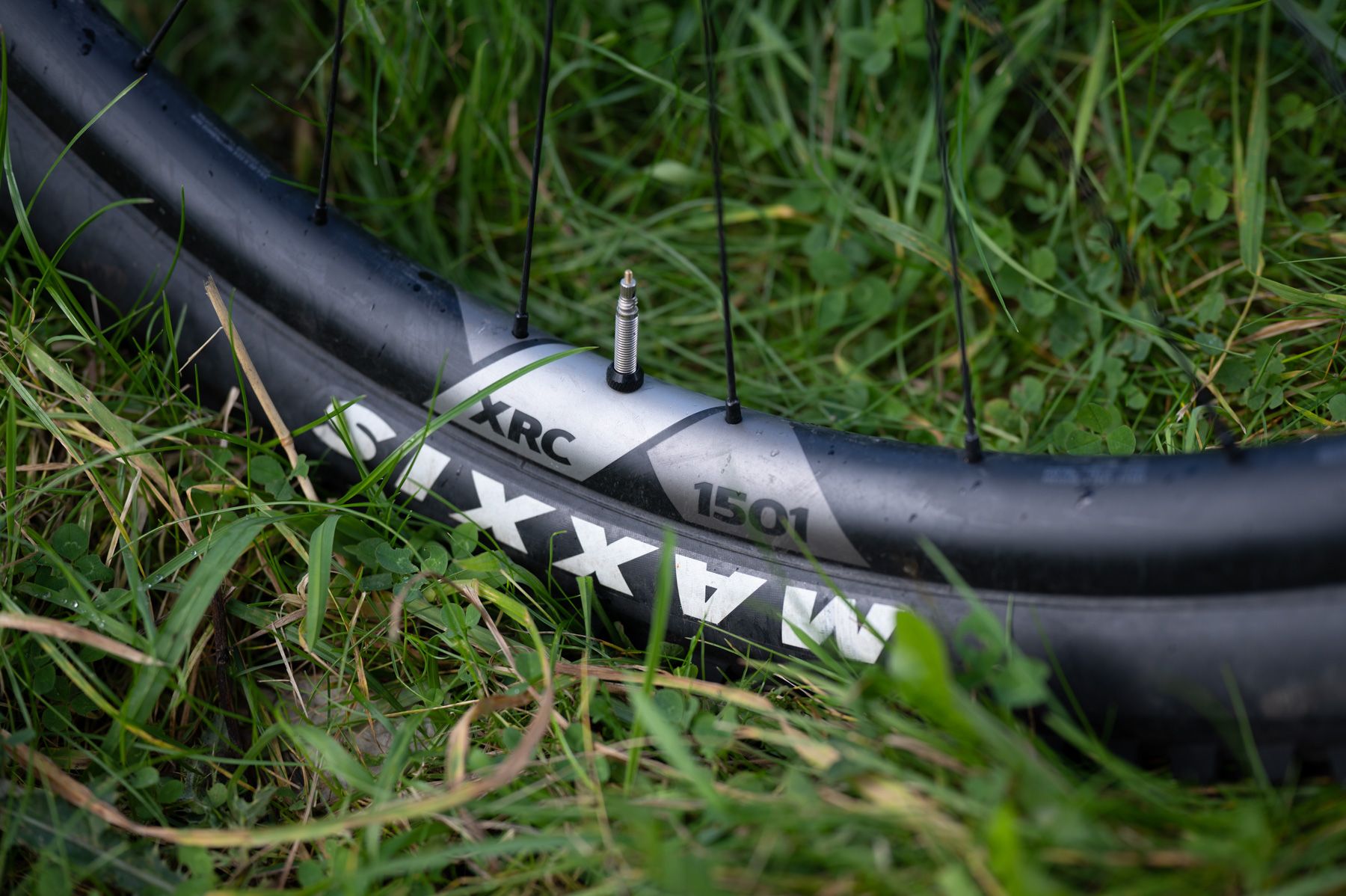
3 Think I’d Improve
- Twistloc remote lockout. Not sure it’s required at all, but if so the Twistloc is prone to movement.
- Brakes. All that speed needs power, and the Level TLMs are adequate, but could be better.
- Aesthetics. Not the prettiest of bikes, but with this performance and value for money who’s looking?
3 Things I Liked
- Electronica. The AXS seat post is excellent. Once you try one, it’s hard to go back.
- Value for money. £5k is a lot, but you get an awful lot for it.
- Speed. This bike is blisteringly fast on trails meant to be ridden fast.
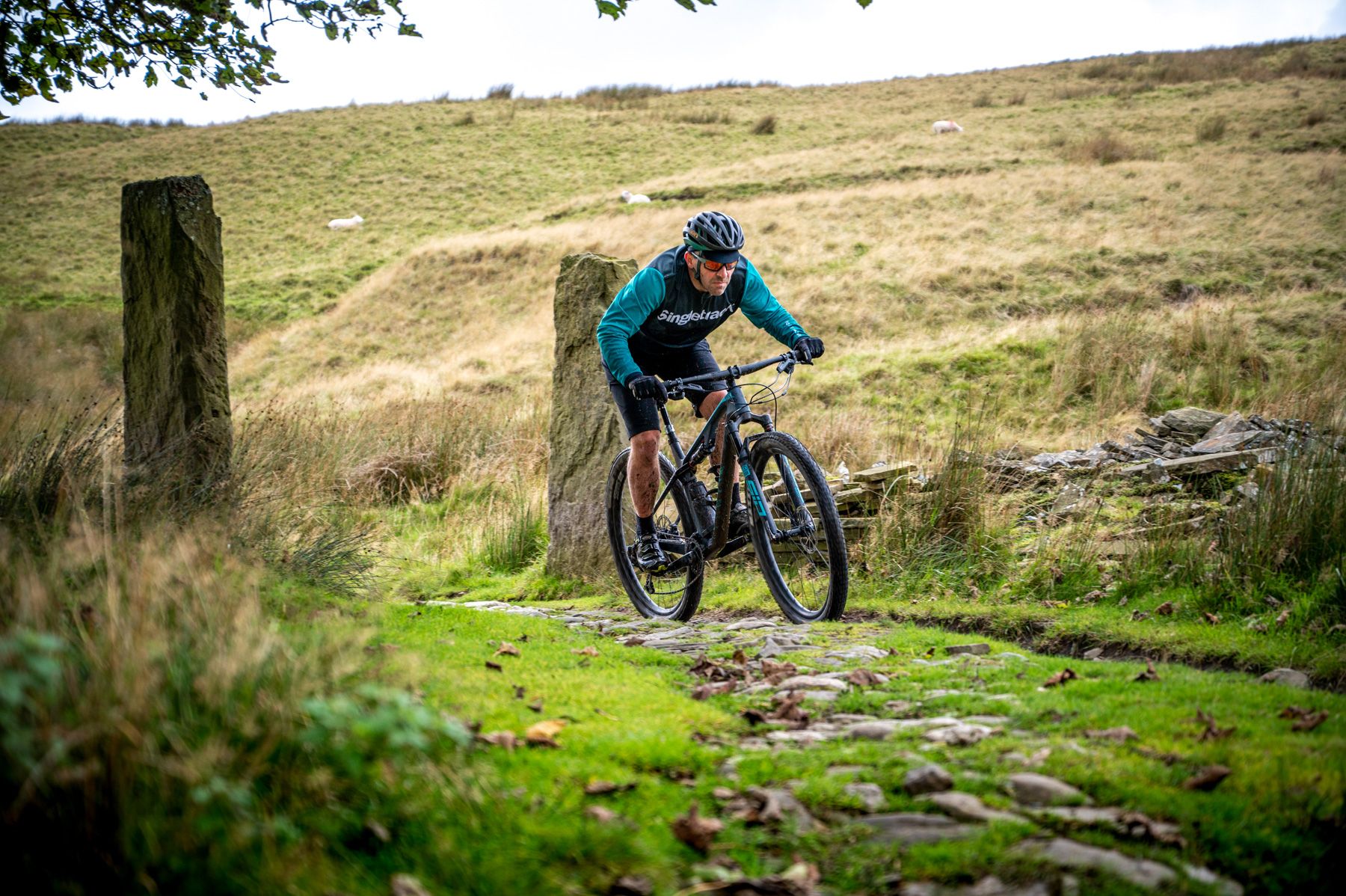
Overall
There was a time not long ago where XC bikes were the preserve of racers or the unadventurous. You either had to be extremely talented to ride them everywhere or be extremely selective about where you rode. I think it’s fairly safe to say that’s no longer the case – it’s not true with the latest crop of all-out race bikes, and it’s certainly not true of XC/Trail hybrids like the Lux Trail. In fact, I’d go as far to say that these bikes are now so good over a wide variety of trails and potential uses that traditional trail bikes are in danger of being limited. Why ride a big heavy bulldozer when you can ride a nimble, mile-munching rocket like this on the same trails?
This poses questions for trail riders, but it’s even more relevant for the racers or KOM hunters among us. Apart from a tiny few who form the elite, I’ve rarely met an XC, endurance or marathon racer who doesn’t want to go faster downhill. It is after all an easy way of gaining time if you can do so safely. The Lux Trail falls squarely into this category, and if you’re a rider who seeks more downhill speed on non-extreme trails whilst minimising the risk of injury, then this bike could well be the answer. It might not be the trendiest or best looking bike, although that’s entirely subjective. But it’s almost certainly one of, if not the best value bike in this category you can buy, and you’ll struggle to find better at this price.
Canyon Lux Trail CF SL 8.0 Specifications
- Frame // Lux Trail CF, 110mm travel
- Fork // RockShox SID Select+ Remote, 44mm Offset, 120mm Travel
- Shock // RockShox Deluxe Ultimate Remote, 210x55mm
- Wheels // DT Swiss XRC 1501 Spline S12
- Tyres // Maxxis Rekon 3C Exo 2.4 front/Maxxis Rekon Race Dual Exo 2.35 rear
- Chainset // SRAM GX Eagle Carbon DUB 34T
- Rear Mech // SRAM GX Eagle AXS 12s
- Shifter // SRAM GX Eagle AXS Contoller
- Cassette // SRAM GX Eagle, 12-speed (10-52)
- Brakes // SRAM Level TLM
- Bar // Race Face Ride Riserbar 760mm
- Stem // Race Face Ride 60mm
- Seatpost // RockShox Reverb AXS 30.9 125mm travel
- Saddle // Selle Italia SLR Boost
- Sizes available // Small, Medium, Large & Extra Large
- Weight // 11.8kg (claimed)
- RRP // £5,149




